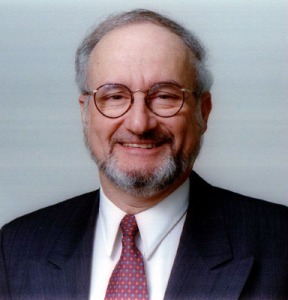“Christians & Jews Faith to Faith,” by Rabbi James Rudin. Jewish Lights. 288 pages. $24.99.
As a staff member of the American Jewish Committee (AJC) for over thirty years, Rabbi James Rudin has been a prominent warrior in the struggle for constructive relations between Christians and Jews. His role as AJC’s director of interreligious affairs allowed him to participate in eleven meetings with Pope John Paul II and Pope Benedict XVI. Now settled in Sanibel, Rabbi Rudin remains active as an author and columnist, while serving as AJC’s senior interreligious advisor. His new book is another step in his long career as an advocate and agent for principles and actions that will build understanding, respect, and enthusiastic cooperation. 
The subtitle says it all: “Tragic History, Promising Present, Fragile Future.” Rabbi Rudin is frank and unapologetic as he probes the history of conflict between Christians and Jews. Indeed, “conflict” is too mild a term for many phases and issues in that history. A primary issue grows out of the early Christians’ decision to adopt one the several names of the Israelite people (the list includes “Jews” and “Hebrews”) for themselves. Calling themselves the “New Israel,” followers of Jesus felt that their new faith community superseded that of the Jewish people and that the coming of Jesus invalided the Israelites’ covenant with God.
This replacement positioning is reinforced by the terms “Old Testament” and “New Testament,” constructions that Rabbi Rudin feels are unsuitable for either tradition, but demeaning to Judaism. Its message is in parallel with that of the dismissive evangelistic notion of Jews being somehow incomplete because of their failure to accept Christ. The labeling of Jews as Christ-killers is an obvious roadblock to any pursuit of constructive relationships between the faiths.
Building interrelationships is not a homogenizing process, but rather one that allows for respectful particularity. Rabbi Rudin is dismayed by feel-good jargon like “Judeo-Christian heritage,” which suggests that we are all the same. He prefers formulations like “Jewish and Christian traditions.” We need to understand and respect differences, not pretend that they don’t exist.
In remarkably efficient and clearly crafted chapters, Rabbi Rudin puts in context several other concerns. These include the long institutionalization of Christian anti-Semitism, the need for the Shoah to be seen as a unique historical tragedy and the term Holocaust to escape the fate of becoming a lower-cased generic term, and the need to understand the intrinsic relationship between the Jewish people and the modern state of Israel.
I do not wish to give the impression that this book is a rehashing of grievances. It is much more than that: at once more profound and more practical. . . . To read this review in its entirety, as it appears in the February 9, 2011 issue of Fort Myers Florida Weekly and the February 10 issue of the Naples Florida Weekly, click here: Florida Weekly – James Rudin Review. See also the profile of Rabbi Rudin published in the same issues by clicking here: Florida Weekly – James Rudin Profile.

